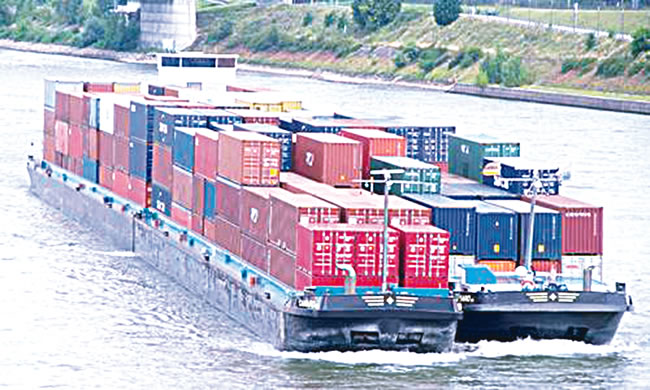The National Association of Government Approved Freight Forwarders (NAGAFF) has called on the House of Representative Committee on Shipping Services and Related Matters to exclude them from the Nigerian Shipping and Port Economic Regulatory Agency Bill in order to avoid freight forwarders being subjected to duplication of regulatory oversights by government agencies.

In a statement sent to the Nigerian Tribune, NAGAFF explained that the association is already subjected to regulatory oversights by the Council for the Regulation of Freight Forwarding in Nigeria (CRFFN) under Act 16 of 2007.
According to the NAGAFF statement, “We the members of the National Association of Government-Approved Freight Forwarders (NAGAFF) succinctly commend and welcome the efforts to repeal the Nigeria Shipper›s Council Act (Cap N133, LFN,2004) and Enact the Nigeria Shipping and Port Economic Regulatory Agency (NISPERA) Bill and Related Matters by the National Assembly.
“Our commendation is based on the fact that the post-concession era of Nigerian ports has suffered so much topsy-turvy economic strangulation given the fact that there has not been an Economic Regulatory Agency.
“Consequently, port concessionaires have over the years had a field day in stifling economic/port operations to their economic advantages. The post-concession challenges of Nigeria›s ports underscore the importance of establishing a dedicated regulatory agency to address issues and ensure fair and efficient operations within the ports and maritime sector.
“However, we will like to make the following observations as it relates to the new bill: We ardently advocate for the exclusion of Freight Forwarders from the regulatory jurisdiction of the Nigeria Shipping and Port Economic Regulatory Agency, as our sector is already regulated by the Council for the Regulation of Freight Forwarding in Nigeria (CRFFN) under Act 16 of 2007.
“This stance highlights the need for regulatory clarity and coherence within the shipping and port industry. If freight forwarders are already subject to regulation by CRFFN, subjecting them to additional oversight by NISPERA will lead to unnecessary duplication of efforts and regulatory burdens.
“With this exclusion, there will be a streamlined regulatory framework that avoids redundancy and ensures that regulatory responsibilities are appropriately allocated among relevant authorities. This approach can enhance efficiency, reduce administrative burdens, and promote better coordination and cooperation within the industry.
“Considering that CRFFN already governs fees for the freight forwarding industry and accredits Freight Forwarders, we strongly reject the inclusion of certain terms, conditions, fees, and licensing of Freight forwarders by the Nigeria Shipping and Port Economic Regulatory Agency. Our position here is in line with the importance of respecting the jurisdiction and expertise of established regulatory bodies like CRFFN and ensuring that regulatory responsibilities are appropriately allocated to foster the growth and competitiveness of the freight forwarding sector.”
“We also demand representation on the Board of the new Bill while also opposing the proposed imposition of a 3 percent charge on import and export cargo, as it contradicts the fundamental objective of regulating tariffs, rates, and charges to prevent arbitrary practices and breaches of the WTO Trade Facilitation Agreement.”
Read Also: We’re not thinking of merger with any political party — PDP







